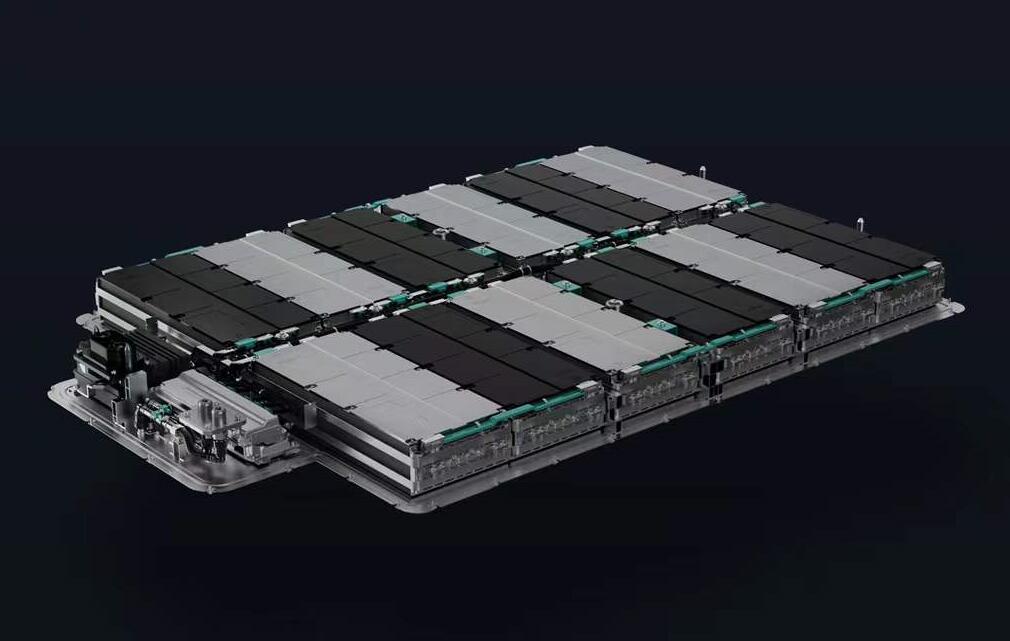CATL's commitment to keep pace with Nio's development of high-performance batteries is written into the executives' KPIs, according to local media reports.

(Image credit: Nio)
Nio founder, chairman and CEO William Li unveiled the 150-kWh pack at the January 9 Nio Day 2020 event when he unveiled the company's flagship sedan, the ET7.
Li said at the time that the pack would use solid-state battery technology, and while he later clarified that it was actually semi-solid-state battery technology, it now appears that the pack will also be built with another technology route.
CATL, China's largest power cell maker, is currently developing a 150-kWh pack solution for Nio using ultra-high nickel technology, local media outlet 36kr said today, citing sources familiar with the matter.
The report cited investors close to Nio as saying that the company began preparing a 150-kWh semi-solid-state pack project in 2019 and first turned to CATL for a solution.
Nio's engineering team spent almost half a year at the time communicating with CATL executives, including Lin Yongshou, president of CATL's passenger vehicle solutions, and Wu Kai, CATL chief scientist, but was rebuffed on the plan.
"They felt it was impossible to achieve and that no one in the industry was offering such a solution," the report quoted the person familiar with the matter as saying.
After running out of options, Nio set its sights on Beijing-based Beijing WeLion New Energy Technology, the first time it's trying to bring in a second battery supplier four years after its exclusive partnership with CATL, according to the report.
The report said industry sources speculate that with a group of CATL's top and middle managers getting rich in recent years, and that has led the power battery giant to stop being so aggressive in their innovation.
CATL's solution for a battery system that only smokes and doesn't catch fire under extreme conditions, released last year, was actually first validated by Nio at other battery companies, which then gave CATL samples, according to the report.
CATL originally planned to have the solution in mass production by 2025, but was driven by Nio to get the solution released five years earlier than originally planned, the report said.
Nio unveiled the 150-kWh battery pack on January 9 of this year when it unveiled its flagship sedan, the ET7, at Nio Day 2020. CATL, noting Nio's move, brought executives to Shanghai to regain the opportunity to provide the solution to Nio, according to the report.
In this communication, CATL also showed introspection. "They are committed to keeping pace with Nio on high-performance battery development, which is also written into the KPIs (Key Performance Indicator) of the executives," the report said, citing sources familiar with the matter.
Li said at the Nio Day 2020 event that the Nio ET7 will have a 150-kWh solid-state battery available in the future, giving it an NEDC range of 1,000 kilometers.
Nio's aggressive goal was once met with skepticism, given that solid-state battery technology has not yet begun commercial mass production.
In an interview after Nio Day 2020, Li clarified that the Nio ET7's solid-state battery is more accurately described as a "semi-solid-state battery".
Late last month, 36kr reported that Nio's 150-kWh semi-solid-state battery supplier is Beijing-based WeLion.
WeLion will receive about RMB 500 million in investment from Xiaomi and Huawei, valued at RMB 5 billion, the report said, adding that Huawei, Xiaomi and Sunway Capital had signed off on the investment in August.
Nio has provided significant resources to help WeLion deliver the battery on time, the report said, citing unnamed investors.
Evidence that supports WeLion as a supplier of semi-solid-state batteries to Nio is that Zeng Shuxiang, CEO of Nio's electric drive unit XPT, is a director of WeLion, the report said.